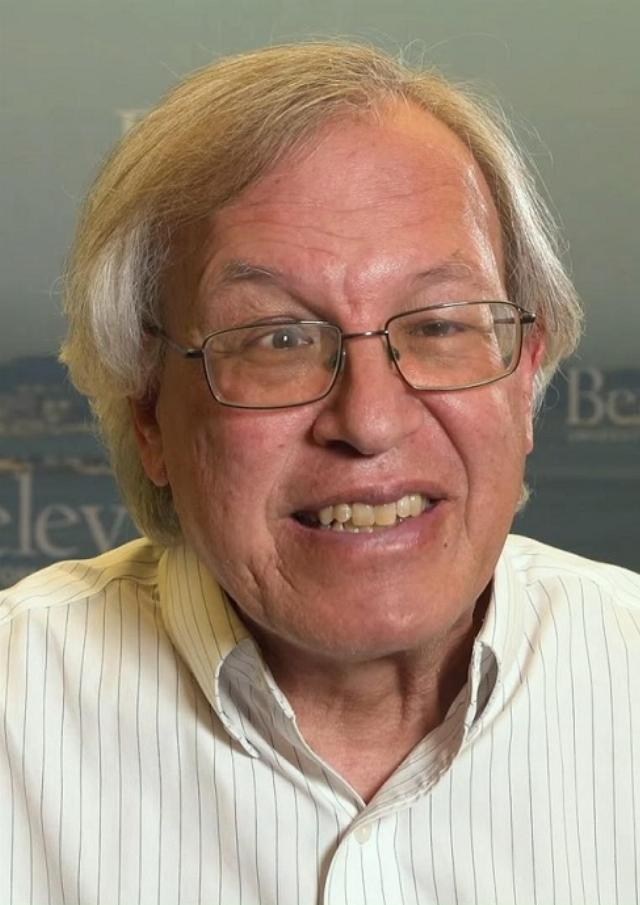Last week controversy arose at the home of the Erwin Chemerinsky, Dean of the Berkeley Law School, at a luncheon he and his wife were hosting for senior law-school students. To become the law-school dean at one of the most leftist universities in the country requires a man who is also an extreme leftist; That man is Dean Erwin Chemerinsky. At one time he was considered as a potential candidate for the U.S. Supreme Court. That destiny, which was derailed by controversy in 2007, resulted in America dodging a bullet which would have impacted SCOTUS to this day. More on that later.
Chem, as he is popularly called, had the leftist credentials that a Democrat president would require as a fit for the Court: Harvard Law, DoJ work in the Carter administration, professor of law at DePaul, the University of Southern California, and Duke.
He is prolific in his writings, with over 200 law-review articles and eleven books to his credit. Additionally, he espouses all the ‘go to’ positions one would expect from a leftist: Favors gun control, opposes the death penalty, Roe was good law, favored gay marriage long before the Obergefell decision. He also once termed the Electoral College to be one of the “compromises concerning slavery.”

In 2007, Chem was appointed to be the Dean of Law at the then brand-new school of law at the University of California at Irvine (UCI). Much of what we now know about the man has emerged with the passing of time. But insiders, those in tune with rising stars in the upper echelons of the nation’s legal system, knew him and they knew just how far left he was. For that reason, he was a perfect candidate not only to become dean but also a potential candidate for a SCOTUS appointment for the soon-to-be president Barack Obama. However, he also had strong and vocal opposition to his appointment at UCI.
The fight against Chem was led by a group of prominent Republicans in Orange and LA County. The appointment also drew criticism from California Supreme Court’s Chief Justice Ronald M. George and Los Angeles County Supervisor Michael D. Antonovich. The opposition was fierce, as well as being successful, at first, as the offer was soon rescinded.
Democrats then circled the wagon in a fight to save their buddy, much as is done in actual judicial nominations. This fight also garnered national attention including an editorial from the New York Times. In that editorial, the Times sang the praises of Chemerinsky and also stated:
“A law school would be mighty fortunate to have Erwin Chemerinsky, a distinguished Duke Law School professor, as its dean. The University of California, Irvine, realized this when it asked him to head up its new law school. This week, however, it rescinded the offer, evidently because of his political views. It’s a disgraceful decision. The University of California system should admit its mistake and, with apologies, extend the offer again.”
The folks at UCI quickly got the message and UCI chanceller Drake was soon on a plane for a weekend meeting in North Carolina with Chem. The meeting resulted in an agreement and Erwin Chemerinsky was soon named as the Dean of the new UCI School of Law.
As to SCOTUS and dodging that bullet? When we look at the justices who have risen to the top of their legal profession, we can divide them into two broad categories: The Persuaders and the Persuadables. The Persuaders are those who because of their high intellect, knowledge of the law, personality, and most of all, the respect they hold among their colleagues, are both rare and very desirable to have on your side. They are the ones listened to by the Persuadables and can have an impact on decisions made by the court. They also represent the ones who will face the most grueling of hearings by the opposition. If those opposed to a nominee cannot openly destroy their chances of approval, they can severely dent or reduce their potential influence. Thurgood Marshall, Ruth Ginsberg, Antonin Scalia, and Elena Kagan all come to mind as being Persuaders. Robert Bork would have been a Persuader had Ted Kennedy not destroyed his chances early on in the hearing process. Clarence Thomas and Brett Kavanaugh had the potential, but the ‘respectability’ factor of both men was severely damaged in the horrible and false attacks made by the Democrats on these men.